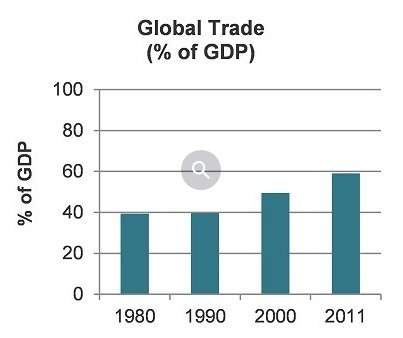
History, 03.11.2020 19:10 Jimenezmiranda
How did Legalism and Daoism attempt to bring stability to China??
Part I: Document Based Analysis
Document 1: Legalism
Historical Context: Founded by Han Feizi, Legalism believed that human nature was evil and that people can only be good if bad behavior was punished harshly and good behavior was rewarded. Legalists believed in a strong and powerful government that ruled with absolute power.
Humaneness may make one shed tears and be reluctant to apply penalties, but law makes it clear that such penalties must be applied. The ancient kings allowed law to be supreme and did not give in to their tearful longings. Therefore, it is obvious that humaneness cannot be used to achieve order in the government...
Hardly ten men of true integrity and good faith can be found today, and yet the offices of the state number in the hundreds. If they must be filled by men of integrity and good faith, then there will never be enough men to go around; and if the offices are left unfilled, then those whose business it is to govern will dwindle in numbers while disorderly men increase. Therefore the way of the enlightened ruler is to unify the laws instead of seeking for wise men, to lay down firm politics instead of longing for men of good faith. Hence his laws never fail him, and there is no felony or deceit among his officials…
Document 2: Daoism
Historical Context: Daoism was an important philosophical tradition in early China. According to Chinese tradition, Laozi (sometimes spelled Lao-tzu), the founder of Daoism, was a sage who lived around the same time as Confucius. Daoism emphasized simple living, shunning of ambition, harmony with nature, and the possibility of a blissful afterlife. Additionally, it teaches that intervening in life’s events causes conflict and destruction, so people should limit their influence and only do what is required.
Lao Tzu’s philosophy tends to look at the troubles of the world and sees harmony guided by something called the Dao, or the path. The Tao Te Ching, which describes the Dao, is somewhat like the Bible. It discusses the “Dao” as the “way” of the world, which is also the path to virtue, happiness and harmony.
Lao Tzu liked to compare different parts of nature to different aspects of life. He said, “The best people are like water, which benefits all things and does not compete with them. It stays in places that others reject.” Each part of nature can remind us of a quality we admire and should incorporate into our lives—the strength of the mountains and trees, the cheerfulness of flowers. Of course, there are issues that must be addressed by action, and there are times for ambition.

Answers: 1
Another question on History

History, 21.06.2019 20:30
Why was russia drawn into a conflict with germany after ausria-hungary declared war on serbia ?
Answers: 2

History, 22.06.2019 01:00
In what way did expansion and global trade during the 15th to 18th centuries affect the economies of european countries?
Answers: 2

History, 22.06.2019 01:00
Which of the following arguments decided the debate over using the atomic bomb against japan in 1945? using the bomb would destroy the armaments still available to japanese forces in japan. using the bomb would demonstrate the power of the united states to the entire world. using the bomb would shorten the war and avoid heavy casualties among invading troops. using the bomb would enable allied forces to invade and take over the japanese mainland
Answers: 1

History, 22.06.2019 06:00
Would creole revolutionaries tend to be democratic or authoritarian leaders?
Answers: 3
You know the right answer?
How did Legalism and Daoism attempt to bring stability to China??
Part I: Document Based Analysis
Questions

History, 24.02.2021 14:00



Mathematics, 24.02.2021 14:00



Biology, 24.02.2021 14:00

History, 24.02.2021 14:00

World Languages, 24.02.2021 14:00

Mathematics, 24.02.2021 14:00


Mathematics, 24.02.2021 14:00

Physics, 24.02.2021 14:00


Mathematics, 24.02.2021 14:00

English, 24.02.2021 14:00

English, 24.02.2021 14:00

Mathematics, 24.02.2021 14:00

Mathematics, 24.02.2021 14:00

Mathematics, 24.02.2021 14:00





